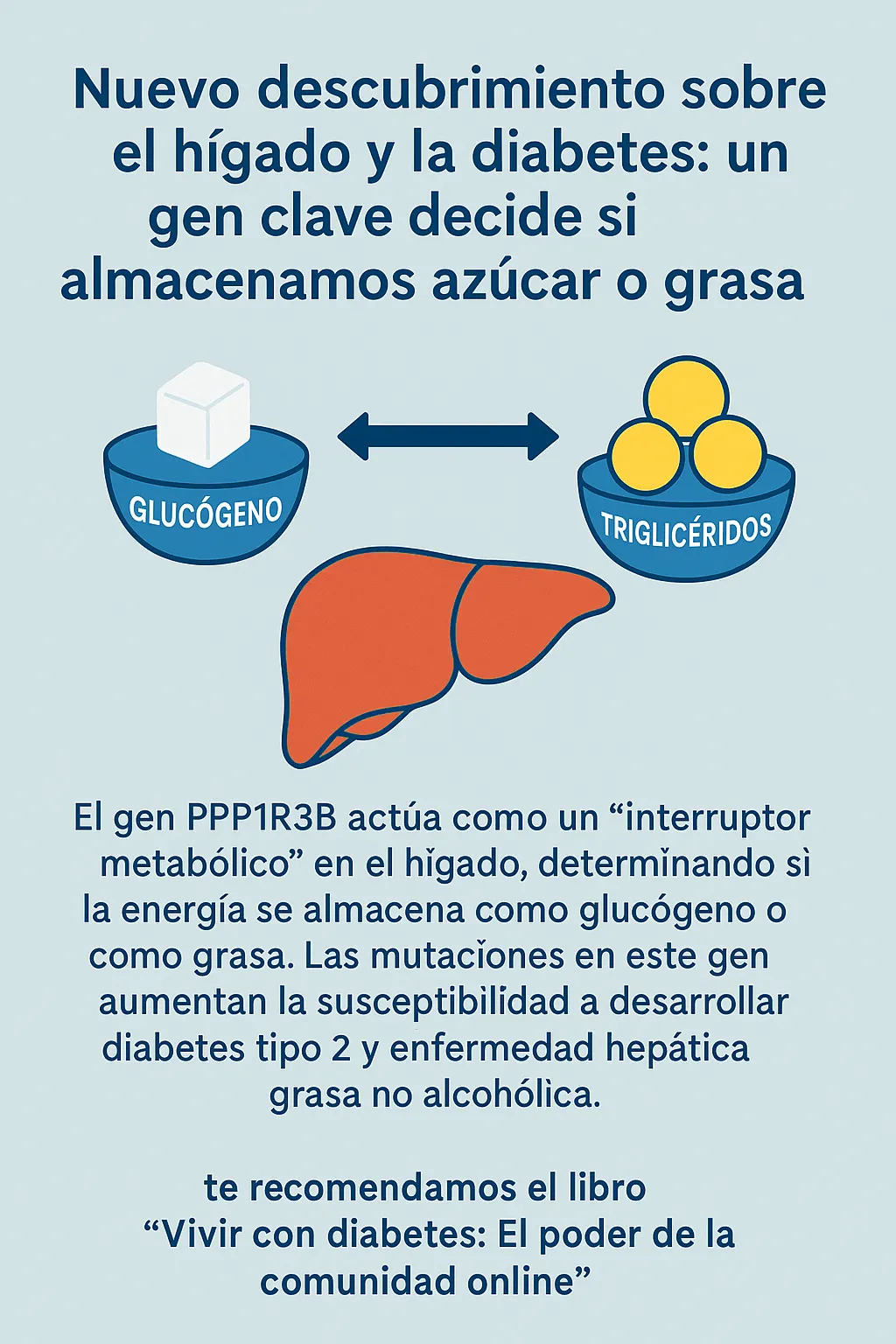This scientific news can change the way we understand metabolism, especially in relation to type 2 diabetes and fatty liver.
A new study published in the prestigious magazineScience Advanceshas identified the fundamental role of a gene calledPPP1R3BIn the functioning of the liver.And you will wonder, what does this have to do with diabetes?Well, much more than it seems.
🔍 What exactly does this gene do?
Our liver, in addition to being the great "filter" of the body, also has a key function: store energy.And you can do it in two ways:
- In the form ofGlycogen, which is a type of reserve sugar.
- Or in the form oftriglycerides, which are fat.
This is where the PPP1R3B gene enters: it works like aMetabolic switchthat decides if that energy is saved as glycogen or as fat.When this genfatty liverand theinsulin resistance.
🧠 Why is this important for people with diabetes?
Because this mechanism helps us to understandHow the body regulates sugar and blood fat.And not only that:Mutations in this gene increase the risk of developing type 2 diabetes and non -alcoholic fat disease.
This finding allows us to think about personalized treatments: if in the future we can know how this gene works in each person, strategies could be designednutritional or medical adapted to their genetics.
🧪 How did they discover it?
The team led by Dr. Kate Towsend Creasy, from the University of Pennsylvania, studied genetically modified mice and cells to understand how the use of glucose and fat varies depending on the activity of the PPP1R3B gene.The results were clear: if the gene is activated more, the body uses glucose better and stores less fat.
💡 And now what?
This type of discoveries open the door to a new era of medicine: one in whichGenetics tells us how to treat and prevent metabolic diseasesAs type 2 diabetes. Therefore, from our community, we believe that it is important to share and discuss these advances, because they can help us better our body and our health decisions.
🙋♀️🙋♂️What do you think?
- Have you heard of the PPP1R3B gene?
- Do you think it is useful to think of nutritional treatments based on genetics?
- Do you think that in the near future this will be accessible to people with diabetes?
I read your comments !!💬💙


